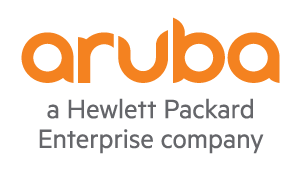ITWeb: You have been interested in the role that ML and AI will play in banking of the future for a while now – how are your finding your new position in Wesbank as the Enterprise Security Architect? How does it differ from your previous role?
Strydom: As you know I have always loved technology, at heart I am really a geek. I love to tinker with tech so it stands to reason that AI as a new platform would fascinate me. I am mostly interested in what it can do for business, and how it will change IT as a whole.
In an industry that has seen so many disruptions already, AI promises to change all the rules we currently know and hold dear.
My move to Wesbank was a natural progression, considering my ultimate career path as it is the perfect mix between a big bank/financial institution and that of a medium enterprise. The obvious consequence of this, there is a lot more room for innovation and agility, in an industry that is still serious about infosec.
ITWeb: Can you tell us how ML and AI are changing the world of finance/banking and what do you believe will be the most ‘exciting/beneficial' change for the consumer?
Strydom: Financial services are very good a processes and procedures leaving it wide open to disruption by automation and AI. The World Bank predicts the 4th Industrial Revolution will target this segment specifically and I envision automation removing the repetitive processes, leaving humans to do the strategic thinking, and AI to do the heavy lifting.
As an example AI systems are being used to grade school and university papers, AI does the heavy lifting, leaving the teacher to focus on the learner which AI cannot do.
In the banking environment opening a new account at a branch requires a teller to log your details onto three or more systems, which as we are all aware takes time and is prone to error. AI can do the same task in under 30 seconds and with 100% percent accuracy which clearly benefits both the bank and the customer.
ITWeb: How do you see the workplace evolving as a result of ML and AI in the next five to 10 years?
Strydom: Predicting the future is really hard. Just consider the last 10 years. In June 2007, there were no real smartphones, no tablets, no Facebook, no Twitter, no "Selfie", no Instagram, well, really no social media at all. We were happy with our Nokia, Blackberry and XP. Can you imagine a world without social media?

Willie Sytrdom, enterprise security architect, Wesbank.
ITWeb: You mention the next generation in your synopsis for the upcoming Enterprise Mobility event – who do you consider to be the next generation and how will the world of work look?
Strydom: From the beginning man has a tool in his/her hand. This is how we elevated ourselves from the bottom of the food chain upwards. A club, a stick, a wheel, fire you name it, but the abacus was a game changer as a tool that developed our minds. The tools available to the next generation are infinitely more powerful, the result a generation of tech savvy individuals that are taught to think for themselves with technology as an enabler.
What were you doing at ten years old? Climbing trees, riding a bicycle around the neighbourhood etc. My son has a YouTube channel with more followers than my wife's Instagram, he has been using Google Voice analytics since before he could write to search for information and we are currently learning Python together. I cannot begin to imagine where this generation will be in ten years' time.
The world of work will have to adapt to this generation, and I question whether the current working environment or people in it will be able to keep up.
ITWeb: What are/is the main ethical and moral dilemmas that we will face as we move into a new world of work?
I believe that the Industrial Revolution way of work will die. People will no longer be chained to their desk for eight hours a day, this will not work for the next generation. I see us moving towards a more outcomes-based performance system. People will also broker their one positions. Today one could be a developer, and tomorrow a project manager, by using new generation tools.
In terms of ethics and morals for the AI we build, I believe we need to ensure that we set guidelines of what we want AI to learn, unless we by accident build our very own Skynet. They need to understand our human values, "the emotional value of a cat must always be greater than the nutritional value of said cat". I think if we get that right, we will still be in charge.



